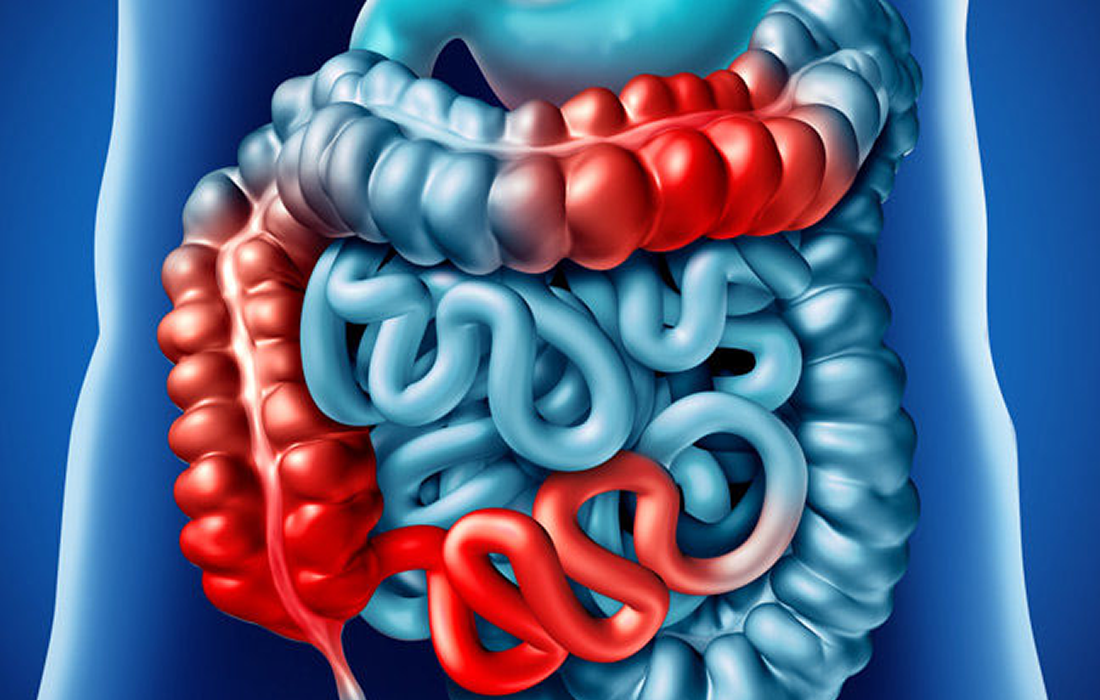Stem Cell Therapy for Specific Conditions
Stem Cell Therapy for Crohn’s Disease
What is Cronh’s Disease?
Crohn’s disease (CD) is a type of inflammatory bowel disease (IBD). It causes inflammation of the digestive tract, which can lead to abdominal pain, severe diarrhea, fatigue, weight loss and malnutrition.
Inflammation caused by Crohn’s disease can involve different areas of the digestive tract in different people. This inflammation often spreads into the deeper layers of the bowel. It is an immune system-mediated, chronic systemic condition characterized by gastrointestinal inflammation and dysregulation of the mucosal-associated immune system.
Epidemiology
The annual incidence of CD ranges from 5 to 20 per 100,000 person-years, and it affects more than 1 million people in the USA. The pathogenesis is complex, featuring disturbance of the innate immune system and reduced gastrointestinal barrier protection. Infections and environmental factors may trigger or exacerbate the disease.
What are Common Signs and Symptoms?
In Crohn’s disease, any part of your small or large intestine can be involved, and it may be continuous or may involve multiple segments. In some people, the disease is confined to the colon, which is part of the large intestine.
Signs and symptoms of Crohn’s disease can range from mild to severe. They usually develop gradually, but sometimes will come on suddenly, without warning. You may also have periods of time when you have no signs or symptoms (remission).
Some common sign and symptoms are:
- Diarrhea.
- Fever.
- Blood in the stool.
- Fatigue.
- Abdominal pain and cramping.
- Mouth sores.
- Reduced appetite and weight loss.
What Causes Crohn’s Disease?
The exact cause is unknown. Previously, diet and stress were suspected, but now researchers think that these factors may aggravate, but don’t cause the condition. Several factors, such as heredity and malfunctioning immune system, likely play a role in its development. The 2 more accepted possible causes are:
- Immune system. It’s possible that a virus or bacteria may trigger Cron’s disease. However, scientists have yet to identify that trigger. This happens when your immune system tries to fight the microorganism and an abnormal activation of the immune response causes the immune system to attack normal cells of the digestive tract.
- Heredity. Crohn’s is more common in people who have family members with the disease, so genes may play a role.
Are There Any Risk Factors?
- Age. Crohn’s disease is likely to develop in the middle age. Most people develop the disease before the age of 30.
- Family history. You are at higher risk if you have a first-degree relative with the disease.
- Cigarette smoking. Smoking leads to more-severe disease and a greater risk of having surgery.
- Nonsteroidal anti-inflammatory drugs. They do not cause the disease but can lead to inflammation of the bowel that makes the disease activity worse.
- Ethnicity. It can affect any ethnic group. Whites have the highest risk, especially people Eastern European (Ashkenazi) Jewish descent.
Current Treatment Options
Current therapies include the use of corticosteroids, immunomodulatory agents such as azathioprine, and biological therapies, including anti-TNF-α antibodies are used to suppress the intestinal inflammation. Approximately 25% of CD patients are refractory to such medications and respond to surgery only. It is thus critical to enhance CD remission and reduce recurrence.
Corticosteroids such as prednisone and budesonide can help reduce inflammation but they don’t work for everyone and can have many adverse effects if used for more than 3-4 months.
Oral 5-aminosalicylates like sulfasalazine and mesalamine were widely used in the past but are now considered of very limited benefit.
Stem Cell Therapies
New therapies, such as the use of Mesenchymal stem cells (MSCs) and hematopoietic stem cells (HSCs) have been shown to counter other autoimmune diseases like rheumatoid arthritis, autoimmune hepatitis and systemic sclerosis. MSCs exhibit low immunogenicity and immunomodulation. Some experiments have shown that local MSCs injection improved CD-related perianal fistulas. HSCs transplantation restored immune tolerance and relieved CD and SCs have been found to inhibit intestinal inflammation, promote long-term intestinal mucosal healing, and significantly improve patient quality of life, making them a good alternative for CD treatment.
Different studies in animal models have proven that stem cell therapy is not only useful for refractory luminal CD, but also shows good effect on the complications of CD. Stem cells can reduce intestinal inflammation, enhance (endoscopically evaluated) mucosal healing, and improve the quality of life in CD patients. Researchers of a meta-analysis published in the journal Stem Cell Research and Therapy suggest that Stem cell transplantation should be recommended in clinical practice. They found different studies that showed that Mesenchymal stem cells derived from umbilical cord (UC-MSCs) were associated with lower risks of infection and less side effects. Also, UC-MSCs have the benefit of being obtained easily and less invasively, with a donor that is young, has a good cell status and the cells have low immunogenicity.
As we can see, stem cell therapy could be a good therapeutic option for patients with CD, a condition for which current treatments only address the symptoms and controlling the inflammation with drugs that can have multiple adverse effects. Clinical studies in humans need to be done in order to evaluate the safety, efficacy of the treatment and to standardize the best quantity of cells and the optimal route of administration.
Stem Cell Therapy at Zignagenix
In Zignagenix we utilize high quality umbilical cord-derived mesenchymal stem cells. They are infused intravenously at high doses and are combined with exosomes to increase the efficacy of the therapy. Due to the immunomodulatory capabilities of these types of stem cells, it makes them a perfect treatment option for this and other types of autoimmune conditions.
Sources:
Wang , R., Yao , Q., Chen , W. et al. Stem cell therapy for Crohn’s disease: systematic review and meta-analysis of preclinical and clinical studies. Stem Cell Res Ther 12, 463 (2021). https://doi.org/10.1186/s13287-021-02533-0.
https://www.mayoclinic.org/diseases-conditions/crohns-disease/symptoms-causes/syc-20353304
Image from:
https://www.agmg.com/digestive-health/crohns-disease-colitis

